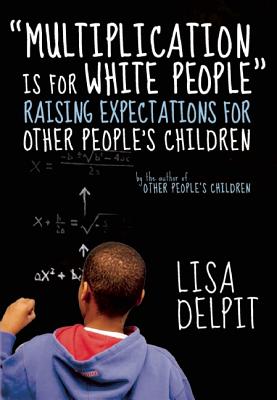 As we think about transforming our schools to meet the demands of the 21st century, it is imperative that we consider this shift through the lens of equity. The changes that the experts in this series have discussed are changes that are needed throughout our educational system. In many ways, however, it can be most difficult to make those changes in the schools that serve our most school-dependent students. To help us think about this issue, today post is about our 13th and final scholar, Dr. Lisa Delpit.
As we think about transforming our schools to meet the demands of the 21st century, it is imperative that we consider this shift through the lens of equity. The changes that the experts in this series have discussed are changes that are needed throughout our educational system. In many ways, however, it can be most difficult to make those changes in the schools that serve our most school-dependent students. To help us think about this issue, today post is about our 13th and final scholar, Dr. Lisa Delpit.
Delpit’s work helps us understand the critical importance of first simply being aware of the cultural context in which education is occurring. As she writes in Multiplication is for White People; Raising Expectations for Other People’s Children:
Author Beverly Tatum talks about how people who live in Los Angeles became smog-breathers. They don’t do anything become smog-breathers, they aren’t conscious of being smog-breather, they just go about their everyday lives as they breathe smog. She then added that if we live in America, we are racism-breathers, and it doesn’t matter what color we are. We don’t try to be, we aren’t usually conscious of that racism we’ve breathed. We just go about our regular lives.
Racism and the consequent inequity that emerges is deeply embedded in our society. To overcome it, we cannot simply ignore it. Instead we need to proactively combat it. For example, we need to recognize how dangerous the negative stereotypes about African-Americans are to young people’s education. These stereotypes can cause African-American students to doubt their own competence leading them to either “hide…and try to become invisible, or…act out to prevent a scenario unfolding in which they will not be able to perform and will once again be proved ‘less than.’”
How do we actively counteract this? Delpit shared her thoughts on this during a recent interview with EdWeek:
I would like teachers to understand the brilliance of the children that they teach and teach accordingly; I would like them to understand and fight against racial stereotypes in their classrooms and their school systems, including addressing their respective curricula; I would like them to understand that teaching African-American students is not just about teaching content, but addressing the implications of societal beliefs that mitigate their learning.
All teachers need to know that they have to learn from the communities in which they teach. They must know that their students have unlimited potential. They must understand, however, that the students they teach are very “teacher dependent,” i.e., they desperately need teachers to learn to be academically successful, as their parents may not have the skills or the time to help them learn the things that middle class parents provide on a regular basis. Therefore, their teachers are even more important to their future well-being that the teachers of middle class children. They need to know how to talk to parents and community members in order to get help understanding problems that may occur in their classrooms and in the school as a whole. They need to be advocates for the children.
In thinking about how we transform schools for the 21st century we must consider how we create an education, that educates all students and is founded on a deep belief in their “inherent intellectual capability, humanity, and spiritual character.”
Questions to consider:
What are the systematic shifts necessary to realize Delpit’s vision for education?
What shifts need to happen in individual classrooms?
How does Delpit’s work compliment and/or complicate the previous scholars in this series?
